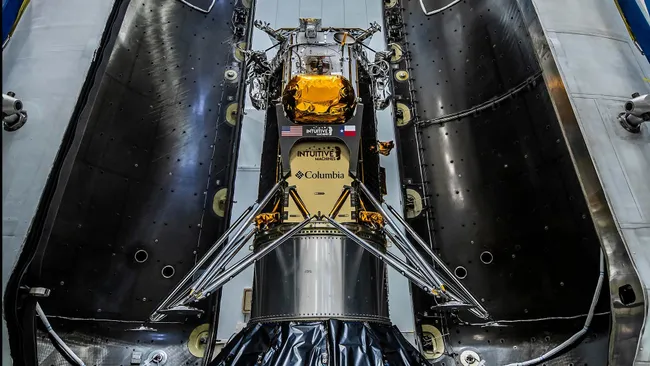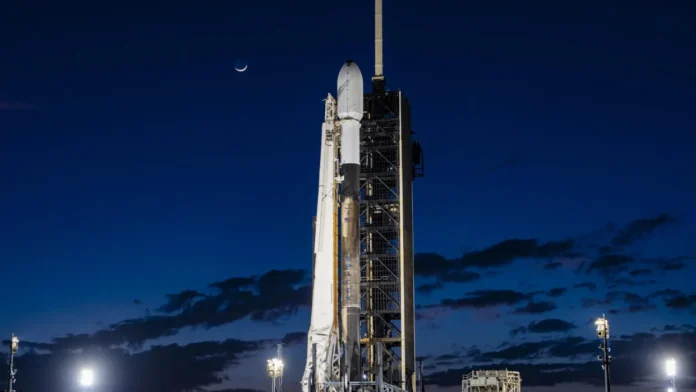Cape Canaveral, Florida – February 14, 2024 – Just hours before its scheduled predawn liftoff on Valentine’s Day, the “IM-1” mission carrying Intuitive Machines’ Nova-C lunar lander aboard a SpaceX Falcon 9 rocket was postponed due to a technical issue. This delay not only throws a curveball into Intuitive Machines’ ambitions but also raises questions about the complexities of achieving private lunar exploration.
Mission on Hold: A Temperature Glitch Delays the Moonshot
The specific reason for the postponement was a temperature issue with the Falcon 9’s liquid methane fuel. According to SpaceX and Intuitive Machines, “improper methane temperatures prior to stepping into methane load” necessitated further investigation and troubleshooting. Both companies prioritized mission assurance, deeming it necessary to address the problem before proceeding with launch.
Eyes on the Prize: Lunar Landing Still Targeted for February 22nd
Despite the delay, neither Intuitive Machines nor SpaceX are throwing in the towel. Facing a closing launch window on February 16th, Intuitive Machines and SpaceX have locked in a new liftoff date for their moon lander mission: Thursday, February 15th, at 1:05 AM EST. This revised schedule still aims for a lunar landing on February 22nd, as planned.
A Historic Attempt: Private Moon Landing in the Making

If successful, IM-1 would represent a significant milestone: the first privately funded and operated mission to achieve a soft landing on the Moon. This accomplishment would mark a major step forward for Intuitive Machines, a company rapidly establishing itself as a key player in the lunar exploration landscape. It would also solidify the role of private companies in pushing the boundaries of space exploration, following the recent Artemis program successes spearheaded by NASA and SpaceX.
Echoes of a Previous Stumble: Lessons from Astrobotic’s Mishap
The IM-1 delay comes just weeks after Astrobotic Technology, another American company vying for lunar landings, experienced a setback with its Peregrine lander mission. Launched in early January, Peregrine suffered a propulsion system leak shortly after entering orbit, ultimately ending its lunar landing aspirations. This event highlighted the inherent risks associated with pioneering endeavors, a reality both Intuitive Machines and SpaceX undoubtedly have in mind.
Beyond the Delay: Looking Ahead at the Implications
The IM-1 postponement serves as a reminder that space exploration, however exciting, is fraught with technical challenges and unforeseen hurdles. While private companies bring agility and innovation, they can also face resource and infrastructure limitations compared to established space agencies. This delay emphasizes the need for rigorous testing, close collaboration between all stakeholders, and a healthy dose of adaptability to navigate the complexities of spaceflight.
The Show Must Go On: What to Expect Next
As we approach the new launch date of February 15th, all eyes will be on SpaceX and Intuitive Machines. Both companies are expected to provide further updates on the resolved temperature issue and their confidence in the revised launch schedule. If successful, IM-1 will pave the way for further private lunar exploration endeavors, demonstrating the growing capabilities and ambitions of companies like Intuitive Machines. However, should another delay arise, it will further emphasize the cautious optimism needed when venturing into the vast unknowns of space.
